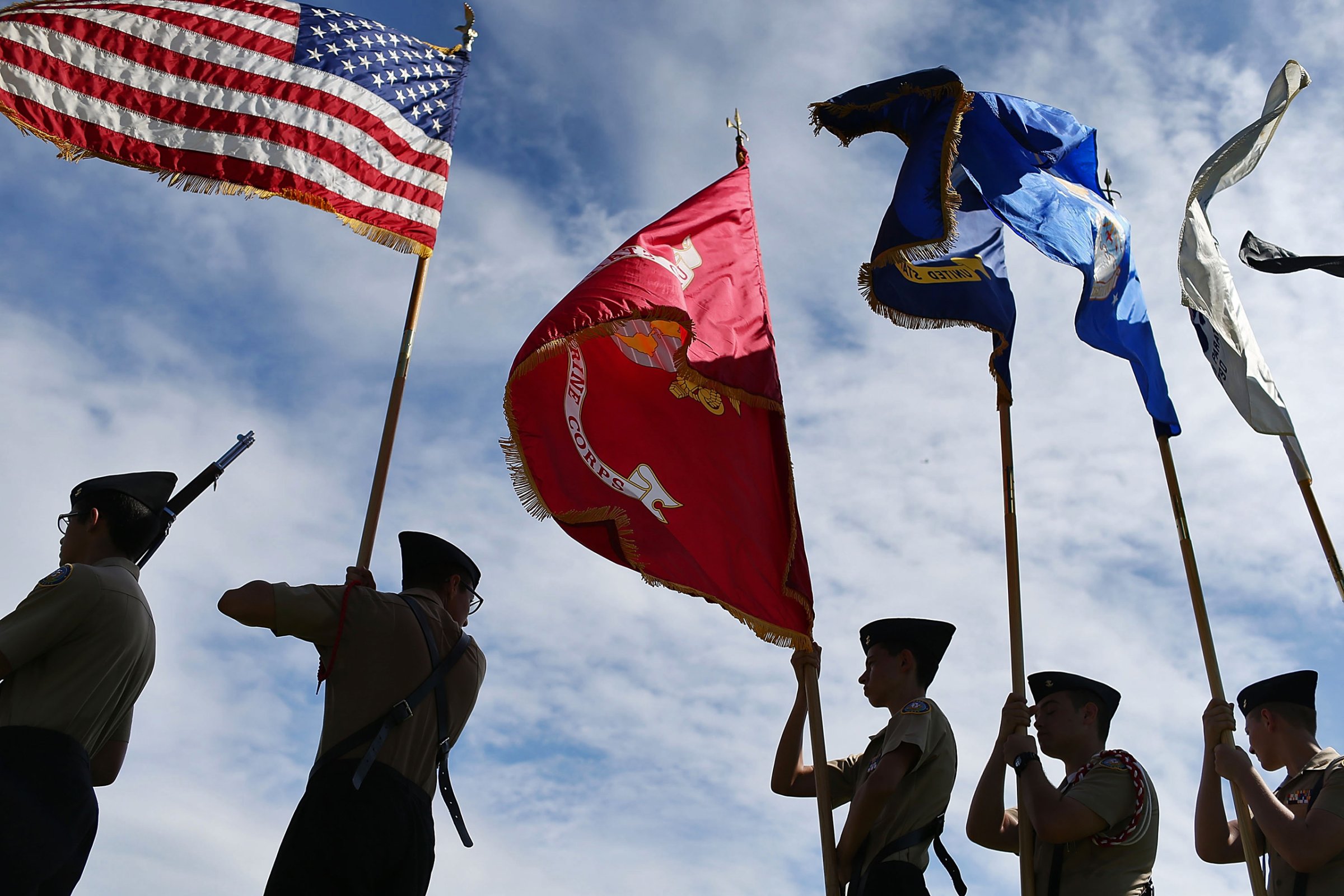
This Veterans Day marks a significant milestone for service men and women.
Since 9/11, the American people have shown tremendous support for our troops, but those returning from service have faced challenges reintegrating, particularly in finding meaningful employment.
After reaching a peak of more than 12% in 2011, unemployment rates for post-9/11 veterans are the lowest they’ve been in five years. Back then, roughly a third of recent veterans under the age of 25—men and women who volunteered right out of high school and gained extraordinary skills that our economy needed—found themselves without work. Times were challenging for them and for their families and communities, but also for businesses that were missing out on recruiting high-value, highly-skilled employees.
Higher veteran employment rates are good news for the nearly 200,000 servicemembers who will return to civilian life this year. We have reason to celebrate this progress and should applaud both the private and public sector efforts that have had an impact on veterans.
But the truth is that our work has only just begun.
Veterans may have an easier time finding a job than they did five years ago, but many of them are not landing jobs that they feel meet their level of experience and expertise. In fact, half of veterans seem to be leaving their first jobs out of the military within a year. What’s more, a new study by the Center for a New American Security sponsored by JPMorgan Chase found that nearly 60% of veterans feel overqualified for the civilian jobs they’re offered.
It’s not easy making the switch from the battleground to the business meeting, but the skills our veterans bring—integrity, diligence, commitment—are highly valued.
Whether it’s government, finance, consulting or another field, getting the right people in the right roles is critical. Hiring veterans is good business because they deliver; engaging and retaining their talent is also great for business. That’s been proven true time and again at JPMorgan Chase.
Five years ago, we took on what felt like at the time an unsurmountable goal—we joined 10 other companies to hire 100,000 veterans. The commitment came from the very top at JPMorgan Chase and sought the advisement of highly respected names in the veterans’ space. Today, the Veteran Jobs Mission has an expanded mission with more than 230 companies committed to hiring one million veterans, and more than 350,000 hires made since then. At JPMorgan Chase, we’ve hired more than 11,000 veterans in the past five years, including 2,000 to have been hired by the end of the year. Other public and private businesses, no matter how small, can do the same for veterans by seeking them out and hiring them.
First Lady Michelle Obama said it best when we announced our new mission of hiring one million veterans, “Our veterans and military spouses are some of the most dynamic, dedicated, and highly skilled individuals in America.” She also acknowledged what many of us who have been hiring veterans already knew, that “these companies aren’t doing it just because it’s the right thing to do for our country,” she said. “They’re doing it because it’s the right thing to do for their bottom line.”
We must recognize the unique skill sets that veterans bring to the workforce and help them translate that into success on the job. The traits they learn in the military lend themselves to a diverse range of positions in the private sector, including information technology, project management, leadership and more.
Business leaders ought to continue investing not only in resources to help veterans with the often bumpy transition into the private sector but also to train managers to understand the unique talents and needs of veterans to help maximize their impact and effectiveness.
That’s why JPMorgan Chase created a sponsorship program to support onboarding veteran employees that pair them up with veterans who have been in the firm for some time, to help them learn the ropes and feel more connected to a community. It is also why we began military internship and executive development programs which provide veterans insight and experience in different lines of work as well as an opportunity to build a support network that will help them learn and grow within the firm. Transition is not easy for anyone, especially coming out of the military to a civilian job, but if we provide the proper support, we have seen see a return on investment that has been well worth it.
This Veterans Day, we recognize the sacrifices our men and women in uniform have made on behalf of us all. To best honor their service, we must find tangible ways to support our veterans as they transition back to civilian life.
More Must-Reads from TIME
- Donald Trump Is TIME's 2024 Person of the Year
- Why We Chose Trump as Person of the Year
- Is Intermittent Fasting Good or Bad for You?
- The 100 Must-Read Books of 2024
- The 20 Best Christmas TV Episodes
- Column: If Optimism Feels Ridiculous Now, Try Hope
- The Future of Climate Action Is Trade Policy
- Merle Bombardieri Is Helping People Make the Baby Decision
Contact us at letters@time.com